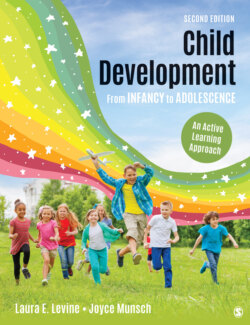Читать книгу Child Development From Infancy to Adolescence - Laura E. Levine - Страница 159
На сайте Литреса книга снята с продажи.
Ethics in Research With Children and Adolescents
Оглавление>> LQ 2.5 What are ethical considerations in research with children and adolescents?
University research with human participants is reviewed and monitored by an Institutional Review Board on the campus at which the research is being conducted to ensure the safety and well-being of those individuals. U.S. Department of Health and Human Services (2017d) regulations provide specific protections for research participants. They can only be exposed to minimal risks during their participation, and any potential risk must be weighed against the anticipated benefits from the research. They must be informed of the purpose of the research, its risks and benefits, and must freely agree—without coercion—to participate; they have the right to withdraw from participation at any point. Finally, the privacy of participants must be protected, and the data collected must be treated as confidential.
Before these safeguards were in place, the best interests of research participants were not always protected. In the Journey of Research: The Case of Henrietta Lacks you will read about an historical breach of research ethics and its consequences.
Journey of Research: The Case of Henrietta Lacks
Henrietta Lacks was a poor, African American woman who developed cervical cancer in the 1950s. She sought treatment at Johns Hopkins, the only medical center in that area that would treat African American patients. While she was being treated, her cells were biopsied and were then used for research without her knowledge or that of her family. Although most human cells die off after reproducing a number of times, the cells taken from Henrietta Lacks’s tumor continued reproducing and resulted in what is known as the HeLa line. They continue to be used in research even today (Skloot, 2010). For this reason, these cells have been called “immortal” and they have been invaluable to science. They have been used to help create the polio vaccine and were the first human cells to be cloned. Over the years, scientists have grown 50 million metric tons of her cells and almost 75,000 scientific publications have been based on their use (Laurencin, 2015). All of this happened without the knowledge of Lacks or her family and without any acknowledgement that the cells were her scientific legacy.
In 2013, a DNA sequence from her cells was published. When Lacks’s grandchildren discovered this, they raised objections concerning their own privacy as well as that of their grandmother. As a result, the National Institutes of Health agreed to give some control of the cells to the family and finally acknowledged the contributions of Henrietta Lacks to science (Zimmer, 2013). In 2010, Lacks received a posthumous honorary doctorate degree in public service from Johns Hopkins University. The way that Henrietta Lacks was treated with regard to her cell “donation” was typical of how patients were treated in the 1950s. Thankfully, changes have been made since then to protect the rights of all human research participants.
Earlier in this chapter, you read about the research conducted with Little Albert. Questions about the ethical treatment of Little Albert include the fact that, although John Watson could have deconditioned Little Albert before he was removed from the foundling home in which he lived, he chose not to, leaving the infant with a phobia that could interfere with his life. Because of their particular vulnerability, children are given additional protections when they participate in research. The Society for Research in Child Development (SRCD, 2012) developed specific guidelines that include
The expectation that no physical or psychological harm will be done to children who participate in research
The expectation that the researcher will use the least stressful research procedures possible
The necessity to obtain consent from both the children and their parents for the child’s participation. If children are not old enough to give consent because they do not necessarily understand the full significance of the research, they still must assent if they are old enough to do that
The right of children and families to freely choose to participate in the research and to be able to terminate participation at any point if they want to
The responsibility of the researcher to inform parents of any threats to the child’s well-being that they become aware of during the research and to arrange for assistance for the child
Children and families are truly participants in the research process. It is only with their help and cooperation that researchers can continue to build the body of knowledge necessary for the scientific study of how children develop.
